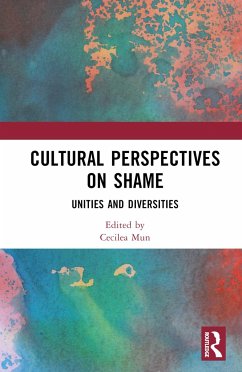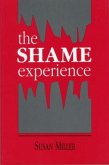Each essay in this volume provides a cultural perspective on shame. More specifically, each chapter focuses on the question of how a culture can differentially affect experiences of shame for members of that culture. As a collection, this volume provides a cross-cultural perspective on shame, highlighting the various similarities and differences of experiences of shame across cultures.
In Part 1, each contributor focuses primarily on how shame is theorized in a non-English-speaking culture, and addresses how the science of shame ought to be pursued, how it ought to identify its object of study, what methods are appropriate for a rigorous science of shame, and how a method of study can determine or influence a theory of shame. In Part 2, each contributor is primarily concerned with a cultural practice of shame, and address how shame is related to a normative understanding of our self as a person and an individual member of a community, how culture and politics affect the value and import of shame, and what the relationship between culture and politics is in the construction of shamed identities.
Cultural Perspectives on Shame will be of interest to scholars and advanced students working in cross-cultural philosophy, philosophy of emotion, moral psychology, and the social sciences.
In Part 1, each contributor focuses primarily on how shame is theorized in a non-English-speaking culture, and addresses how the science of shame ought to be pursued, how it ought to identify its object of study, what methods are appropriate for a rigorous science of shame, and how a method of study can determine or influence a theory of shame. In Part 2, each contributor is primarily concerned with a cultural practice of shame, and address how shame is related to a normative understanding of our self as a person and an individual member of a community, how culture and politics affect the value and import of shame, and what the relationship between culture and politics is in the construction of shamed identities.
Cultural Perspectives on Shame will be of interest to scholars and advanced students working in cross-cultural philosophy, philosophy of emotion, moral psychology, and the social sciences.
"This impressive collection of scholarships on shame, seen through a diversity of cultural lens, is a must read for anyone who is interested in gaining a wider perspective on the subject beyond the standard account in the West."
Louise Sundararajan, PhD, Independent Scholar
"This book offers a brilliant survey of how 'shame' is understood in diverse non-western traditions in the comparative light of contemporary global theory. Beyond conventional western definitions of shame, this volume extends meanings and values of shame through introducing theories and embodied practices from trans-cultural perspectives, and Asian and comparative analysis."
Jea Sophia Oh, PhD, Associate Professor of Philosophy, West Chester University of Pennsylvania
"This volume poses the question: what can we learn about shame by exploring it in a wide variety of cultural contexts? Such an exploration demonstrates the nuances of a complex emotion. The essays invite readers to reimagine theoretical boundaries that are often put in place by those of us who are steeped primarily in the Western tradition. The volume is a great help to anyone who wants to enlarge the conversation about the place of shame in moral psychology."
Krista K. Thomason, PhD, Associate Professor of Philosophy, Swarthmore College
Louise Sundararajan, PhD, Independent Scholar
"This book offers a brilliant survey of how 'shame' is understood in diverse non-western traditions in the comparative light of contemporary global theory. Beyond conventional western definitions of shame, this volume extends meanings and values of shame through introducing theories and embodied practices from trans-cultural perspectives, and Asian and comparative analysis."
Jea Sophia Oh, PhD, Associate Professor of Philosophy, West Chester University of Pennsylvania
"This volume poses the question: what can we learn about shame by exploring it in a wide variety of cultural contexts? Such an exploration demonstrates the nuances of a complex emotion. The essays invite readers to reimagine theoretical boundaries that are often put in place by those of us who are steeped primarily in the Western tradition. The volume is a great help to anyone who wants to enlarge the conversation about the place of shame in moral psychology."
Krista K. Thomason, PhD, Associate Professor of Philosophy, Swarthmore College








